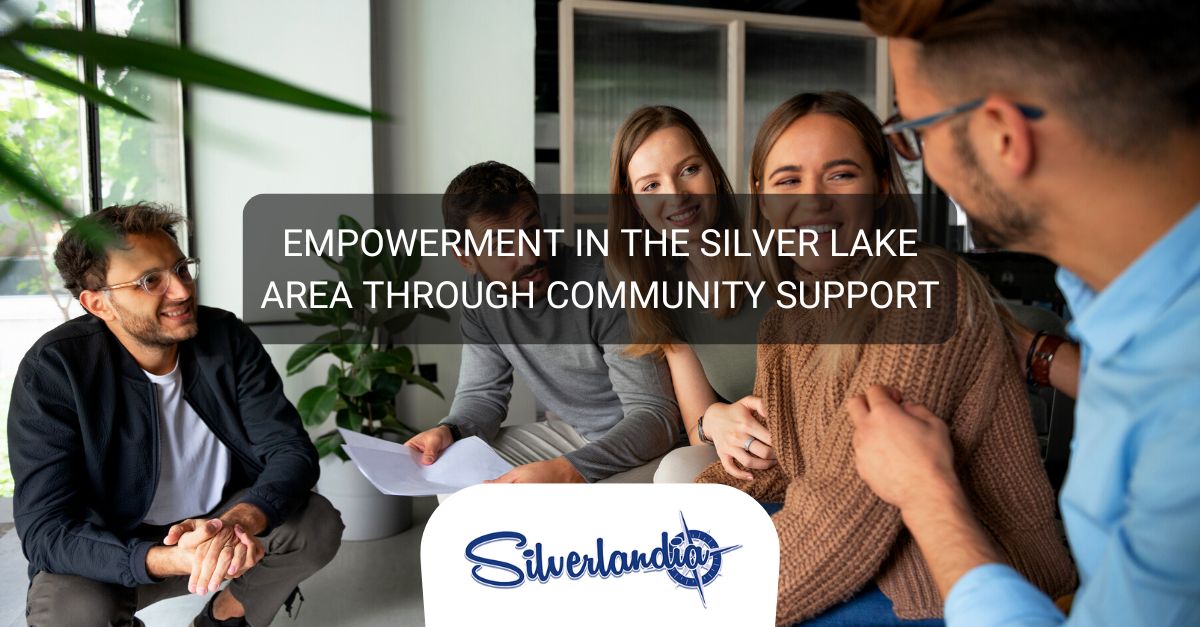Communities provide collective spaces for shared identity and solidarity, thereby predicting supportive, prosocial responses. The process of empowerment can be an intricate one, each one with its own desired outcomes of hope, empowerment, and autonomy. For example, the ability to become resilient in a great number of situations is dependent on a number of factors, one of which is having a strong support network composed of people who one likes, respects, and trusts. It doesn’t matter who they are—family members, friends, teachers, religious leaders, neighbours, or peers — the most important thing is that you have a group of people with whom you are comfortable discussing what you are going through and with whom you can receive any necessary support. In this Silverlake news article, we’ll discuss a bit about empowerment through the community.
The Importance of Community
According to the findings of numerous bodies of research, having a social support system can have a beneficial effect on one’s overall mental health, particularly for women, older adults, patients, workers, and students. A survey conducted in 2015 found that the average level of stress experienced by people who had access to emotional support was 5.3 out of 10, whereas the average level of stress experienced by people who did not have access to emotional support was 6.3 out of 10, with 10 representing “a great deal of stress” and 1 representing “little or no stress.”
Benefits of Community Support
If you have a small group of people in your life that you can turn to for advice and support, it will be much easier for you to deal with the challenges you face on a daily basis as well as make challenging decisions in times of crisis. Additionally, there are other benefits, such as:
Overcoming Loneliness
Support from the people you care about can help combat social isolation and loneliness, both of which can put you at a higher risk for a variety of physical and mental health issues, such as high blood pressure, a weakened immune system, anxiety, depression, and a host of other conditions.
How Can I Start Building or Improving My Support System?
If you don’t have a large circle of friends or family to lean on, or if you just don’t know where to begin, don’t be afraid to ask for help. Services, support groups, and other programs may be advertised through local branches of national organizations like charities or event online support groups, as well as through local places like senior and community centres, libraries, immigrant groups, and neighbourhood health clinics. Keep in mind that the people who stand by you may take on a variety of personalities, and constructing a support system is a slow process. These people should reflect the breadth and depth of your ideas and experiences.
Starting to form Connections
Make connections with people who have interests similar to yours. Joining a club, giving your time to a local organization, or enrolling in a class are all great ways to increase your chances of meeting people who share your preferences and passions. Get in touch with family and close friends. A conversation can be started by simply greeting someone or offering to assist with some work.
Search for groups that provide support from peers. Consider becoming a member of a peer support group if you are going through a difficult time in your life. This can help you take care of your mental health and connect you with others who are going through something comparable.
Try Different Approaches
All people have different social support needs, so there is no one-size-fits-all solution. It’s okay if you don’t have a person in your life with whom you can confide absolutely everything. Perhaps you can vent to a coworker about issues at the office and a neighbour about parenting challenges. Keep in mind the various connections available to you for various forms of emotional and mental health. Keep in mind that it’s important to seek out reliable people so that you don’t have to deal with any more disappointing, negative interactions that could make you feel even worse.
Work on Your People Skills
If you’re at a loss for words and don’t know how to break the ice in a social situation, try asking straightforward questions about the other person. If you’re the shy type, it might be easier to break the ice by doing something fun together, like going for a bike ride or taking a knitting class. If you have trouble getting along with other people, you could also see a therapist who specializes in social anxiety and teaching social skills.
Finding Strength in Community
During this process, it is vitally important to prioritize the maintenance of both your physical and mental health. When it comes to taking care of yourself and building a support system around you, the community at Silver Lake is a great way to build community support.
Remember that caring for yourself can assist you in being there for others, just as being there for others can assist you in settling yourself. Some people may need more alone time to interact with others; pay attention to what you need, not what others (including us!) tell you to do.




